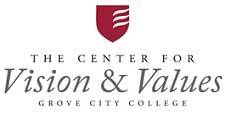By Dr. Gary Smith


Grove City, PA –-(Ammoland.com)- Recently, President Obama announced the creation of a new program to help Latino and African-American males. Not surprisingly, he called this initiative “My Brother’s Keeper.”
During his presidency, Obama has used this biblical phrase more than 60 times to support his commitment to aiding the disadvantaged and downtrodden.
Obama announced that his administration had solicited the support of foundations, businesses, state and local political officials, religious leaders, and nonprofit organizations to create “more pathways to success” for these young men. He reported that these groups have promised to invest at least $200 million over the next five years for the initiative.
Anyone who works hard and takes responsibility for his own life, Obama argued, should be able to succeed in America regardless of his race, ethnicity, sex, or family background. Achieving this goal requires giving all children “access to a world class education,” creating more jobs, providing workers with skills, and paying a livable wage.
He said that because these young men have “the odds stacked against them” and fewer opportunities, “unique solutions” are necessary. Half of African-American boys and a quarter of Latino boys, the president reported, are growing up without a father in their home. These boys are likely to live in indigent families and to read poorly. They are far more likely than other boys to not finish high school, commit a crime, and be a victim of crime. Fewer young African-American and Latino men (compared to young white men) have jobs and consequently have higher rates of poverty.
In the aftermath of the emotionally laden Trayvon Martin verdict, Obama declared, it is paramount to assure these young men that “their country cares about them and values them and is willing to invest in them.” Thankfully, they have outstanding African American and Latino role models in business, sports, politics, and the military such as Colin Powell, Magic Johnson, and Anthony Foxx who have all “defied the odds.”
Although Obama did not directly cite the Bible or use Scriptural arguments in announcing his new initiative, “my brother’s keeper” has been his go-to phrase since 2008. During the presidential campaign, Obama called for “an active faith, rooted in that most fundamental of all truths: that I am my brother’s keeper.” In 2011, the president asserted, “every time we’ve had to make a decision, my guiding principle … has been [that] I am my brother’s keeper.”
Obama claimed that year that his efforts to help working-class and poor Americans by extending unemployment insurance, improving education, doubling the funding for LIHEAP (a home heating assistance program), increasing the child tax credit, Pell grants for college students, and the earned-income tax credit were all motivated by his belief that “I am my brother’s keeper.” Exhorting Americans to combat human trafficking at the Clinton Global Initiative in 2012, Obama invoked the story of the Good Samaritan. Recognizing that “we are our brother’s keepers,” he proclaimed, “we’ve got to bind up” people’s wounds. In his 2012 Christmas message, Obama declared, “a child born in a stable brought our world a redeeming gift of peace and salvation.” This message “speaks to us to this day—that we are called to love each other as we love ourselves, that we are our brother’s keeper … [this is] a message that guides my Christian faith.”
Obama’s faith has been very controversial and misunderstood. He has testified frequently to his belief in Jesus Christ as his savior and Lord, especially in his speeches at the annual national prayer breakfast, but he has rarely attended church as president. Obama’s faith is difficult to decipher because various streams—the African-American church, the Social Gospel movement, mainline Protestantism, and evangelicalism—have all helped shape it. He shares the greatest affinity with progressive Protestants and socially liberal evangelicals who view assisting the “least of these” as the highest biblical social priority.
The disparate assessments of Obama’s faith by politically conservative and liberal Christians stem largely from their sharp disagreement over what responsibilities the Bible assigns to government and whether government programs or private projects and acts can best alleviate poverty.
The president has chosen a strange text as his principle biblical theme—the words are Cain’s response to God in Genesis 4 after murdering his brother Abel—“am I my brother’s keeper?” Nevertheless, the Bible clearly teaches that we are responsible for helping one another and that those with wealth, power, and privileges are specially called to aid those who are struggling. Therefore, recognizing the huge challenges confronting African-American and Latino boys and young men today, and the pivotal role private groups will play in Obama’s initiative, we should all applaud and support it.
— Dr. Gary Scott Smith chairs the history department at Grove City College and is a fellow for faith and the presidency with The Center for Vision & Values. He is the author of “Faith and the Presidency From George Washington to George W. Bush” (Oxford University Press, 2009) and “Heaven in the American Imagination” (Oxford University Press, 2011).
© 2013 by The Center for Vision & Values at Grove City College. The views & opinions expressed herein may, but do not necessarily, reflect the views of Grove City College.
